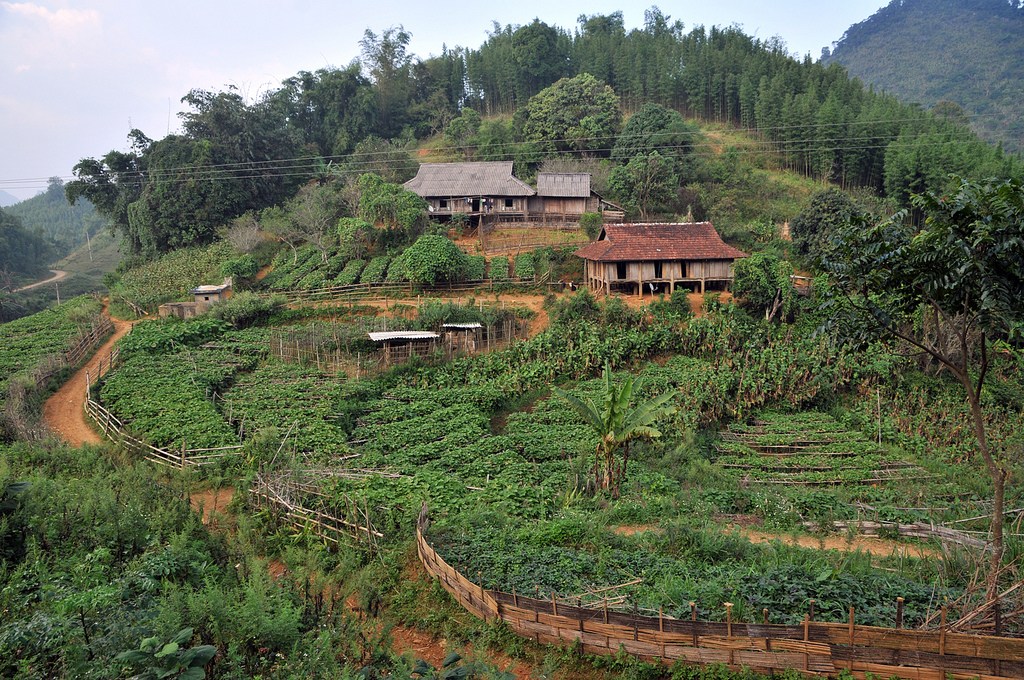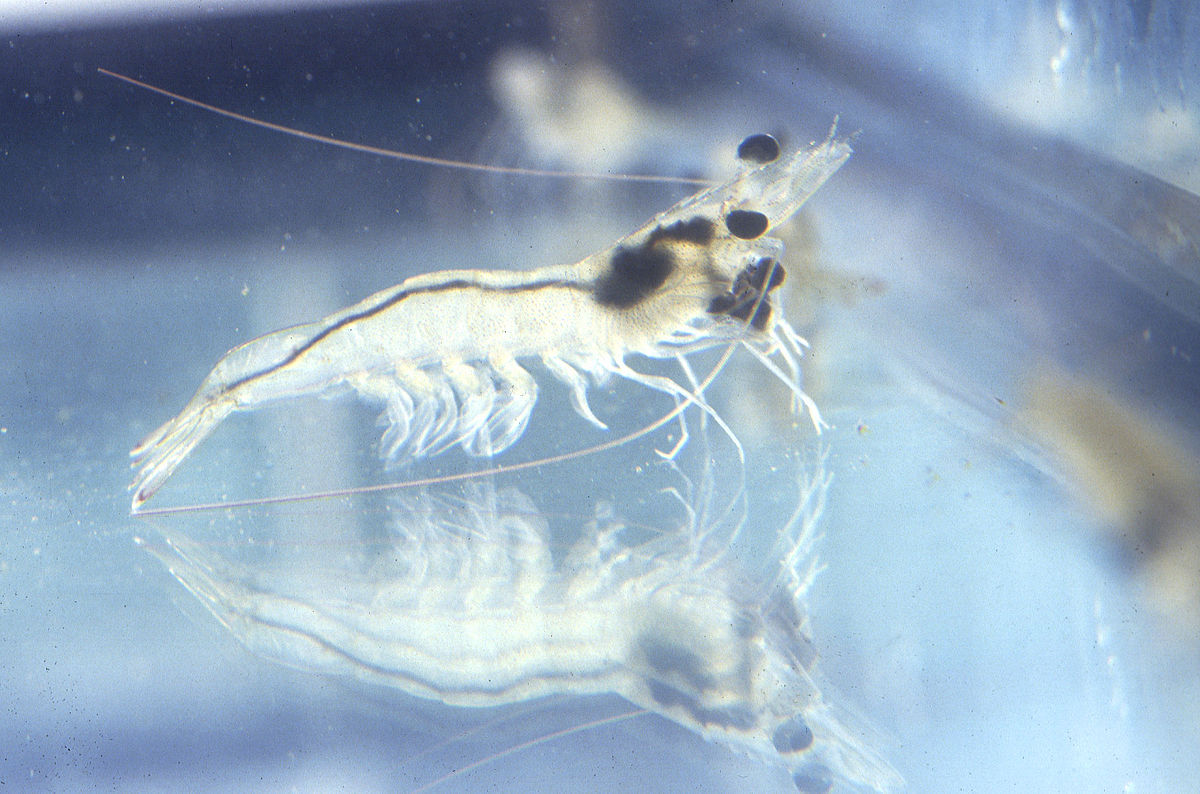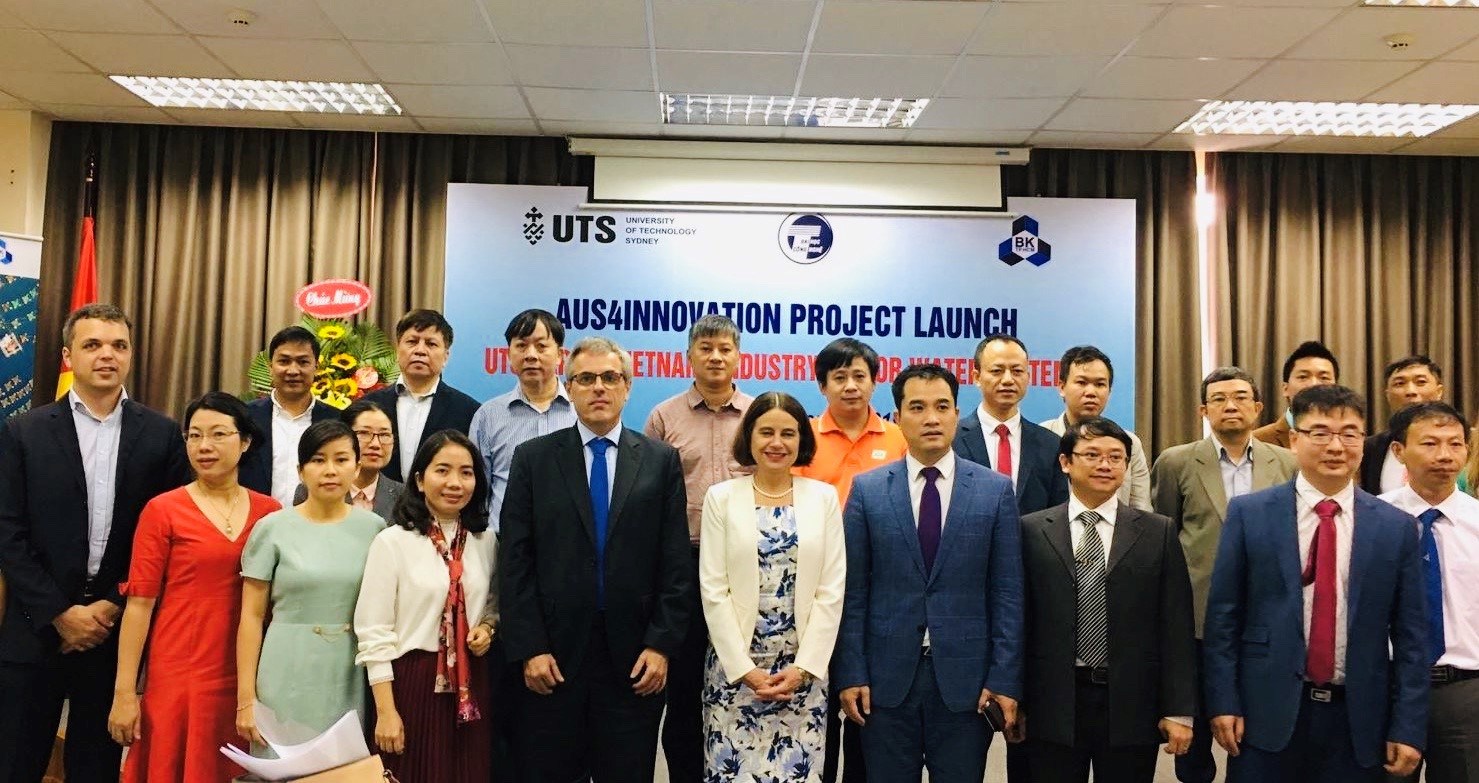Collaborating on diverse science and technology projects
CSIRO has a strong relationship with the Ministry of Science and Technology (MOST) due to its longstanding history of research collaboration activities in Vietnam. In March 2018, CSIRO and MOST signed a Memorandum of Understanding (MoU) to encourage collaboration between qualified research and development institutions in Vietnam and Australia. The MoU encourages joint research activities in the areas of agriculture, food, health, biosecurity, oceans and atmosphere, energy, manufacturing, land and water, astronomy, information technology and digital data.

In 2019, CSIRO's Data61 and Vietnam's Ministry of Science and Technology (MOST) launched Vietnam's Future Digital Economy, a report that examines the trends affecting the development of Vietnam's digital economy until 2045. Data61 worked with MOST's team to identify seven megatrends affecting Vietnam's future digital economy. These include the impact of emerging digital technologies, new export markets for Vietnam, the development of modern digital infrastructure, the push to smart cities, the rise of digital skills and services and changing consumer behaviours. Megatrends informed the development of four potential future scenarios, which provide a blueprint for decision makers to plan for Vietnam's future digital economy.
Vietnam's Future Digital Economy will depend upon its level of adaptation to digital products and services across government, the community and industry. Vietnam has been one of the world’s fastest growing economies and has already become one of the most dynamic countries in the East Asia region. The next wave of digital technologies- artificial intelligence, blockchain technology, the Internet of Things and cloud-based services- has the potential to transform Vietnam into Asia's next high-performing economy.

Developing strategies for agribusiness in Vietnam
In 2014 and 2015, CSIRO and Vietnam's Ministry of Agriculture and Rural Development (MARD) coordinated the Innovation Forum for Inclusive Agribusiness, a networking and learning initiative.
The forum showcased inclusive agribusiness innovation trends, practical examples of effective practice and future investments, policy decisions and practical strategies. It initiated a multi-stakeholder network amongst small-scale farmers, business leaders, development practitioners, key government officials and research experts.
Advancing whiteleg shrimp production

CSIRO collaborate with the Viet-Uc Seafood Corporation on a number of aquaculture research projects. Viet-Uc is one of the world's largest prawn producers. The company supplies more than a quarter of the baby prawns used in Vietnam.
CSIRO and Viet-Uc recently collaborated on a High Intensity Growout System project. It aims to advance their whiteleg shrimp high intensity growout production site over a three-year period. The project is focused on strategic research and development to improve the cost-efficiency and reliability of production and to advance super-intensive production technologies.
Strengthening the economy of the future
Aus4Innovation is a partnership between the Australian Department of Foreign Affairs and Trade, the Vietnamese Ministry of Science and Technology and CSIRO. The goal is to share knowledge and experience between Australia and Vietnam to strengthen innovation systems, deepen research linkages and private sector connections. This can help the countries utilise the benefits of new technology to build the economy of the future. The development assistance program aims to strengthen Vietnam’s innovation system, prepare for and embrace opportunities associated with Industry 4.0, and help shape Vietnam's innovation agenda in science and technology.

Representatives from both Australia and Vietnam came together to launch the University of Technology Sydney (UTS) Rapido Vietnam: Industry 4.0 for water systems project, an AUD $1 million project awarded under the Aus4Innovation Partnership Grants Program. Under this initiative, the Rapido, a commercialisation model developed by University of Technology Sydney (UTS), will be introduced to Vietnam National University (VNU) and applied in rural disadvantaged communities to address water pollution challenges.
Internet of Things and data engineering technologies for water systems will be developed to remove arsenic from water in the Red River delta provinces. Enhanced water monitoring systems will provide lobster farmers with real time data in the Phú Yên Province.
The project will improve quality of life and aquaculture practice in these regions, and is expected to be scaled up across Vietnam thereafter. It is the result of a fruitful collaboration between UTS and leading Vietnamese universities, including the University of Engineering and Technology, Vietnam National University, and Ho Chi Minh University of Technology.
Collaborating on diverse science and technology projects
CSIRO has a strong relationship with the Ministry of Science and Technology (MOST) due to its longstanding history of research collaboration activities in Vietnam. In March 2018, CSIRO and MOST signed a Memorandum of Understanding (MoU) to encourage collaboration between qualified research and development institutions in Vietnam and Australia. The MoU encourages joint research activities in the areas of agriculture, food, health, biosecurity, oceans and atmosphere, energy, manufacturing, land and water, astronomy, information technology and digital data.
In 2019, CSIRO's Data61 and Vietnam's Ministry of Science and Technology (MOST) launched Vietnam's Future Digital Economy, a report that examines the trends affecting the development of Vietnam's digital economy until 2045. Data61 worked with MOST's team to identify seven megatrends affecting Vietnam's future digital economy. These include the impact of emerging digital technologies, new export markets for Vietnam, the development of modern digital infrastructure, the push to smart cities, the rise of digital skills and services and changing consumer behaviours. Megatrends informed the development of four potential future scenarios, which provide a blueprint for decision makers to plan for Vietnam's future digital economy.
Vietnam's Future Digital Economy will depend upon its level of adaptation to digital products and services across government, the community and industry. Vietnam has been one of the world’s fastest growing economies and has already become one of the most dynamic countries in the East Asia region. The next wave of digital technologies- artificial intelligence, blockchain technology, the Internet of Things and cloud-based services- has the potential to transform Vietnam into Asia's next high-performing economy.
Developing strategies for agribusiness in Vietnam
In 2014 and 2015, CSIRO and Vietnam's Ministry of Agriculture and Rural Development (MARD) coordinated the Innovation Forum for Inclusive Agribusiness, a networking and learning initiative.
The forum showcased inclusive agribusiness innovation trends, practical examples of effective practice and future investments, policy decisions and practical strategies. It initiated a multi-stakeholder network amongst small-scale farmers, business leaders, development practitioners, key government officials and research experts.
Advancing whiteleg shrimp production
CSIRO collaborate with the Viet-Uc Seafood Corporation on a number of aquaculture research projects. Viet-Uc is one of the world's largest prawn producers. The company supplies more than a quarter of the baby prawns used in Vietnam.
CSIRO and Viet-Uc recently collaborated on a High Intensity Growout System project. It aims to advance their whiteleg shrimp high intensity growout production site over a three-year period. The project is focused on strategic research and development to improve the cost-efficiency and reliability of production and to advance super-intensive production technologies.
Strengthening the economy of the future
Aus4Innovation is a partnership between the Australian Department of Foreign Affairs and Trade, the Vietnamese Ministry of Science and Technology and CSIRO. The goal is to share knowledge and experience between Australia and Vietnam to strengthen innovation systems, deepen research linkages and private sector connections. This can help the countries utilise the benefits of new technology to build the economy of the future. The development assistance program aims to strengthen Vietnam’s innovation system, prepare for and embrace opportunities associated with Industry 4.0, and help shape Vietnam's innovation agenda in science and technology.
Representatives from both Australia and Vietnam came together to launch the University of Technology Sydney (UTS) Rapido Vietnam: Industry 4.0 for water systems project, an AUD $1 million project awarded under the Aus4Innovation Partnership Grants Program. Under this initiative, the Rapido, a commercialisation model developed by University of Technology Sydney (UTS), will be introduced to Vietnam National University (VNU) and applied in rural disadvantaged communities to address water pollution challenges.
Internet of Things and data engineering technologies for water systems will be developed to remove arsenic from water in the Red River delta provinces. Enhanced water monitoring systems will provide lobster farmers with real time data in the Phú Yên Province.
The project will improve quality of life and aquaculture practice in these regions, and is expected to be scaled up across Vietnam thereafter. It is the result of a fruitful collaboration between UTS and leading Vietnamese universities, including the University of Engineering and Technology, Vietnam National University, and Ho Chi Minh University of Technology.
